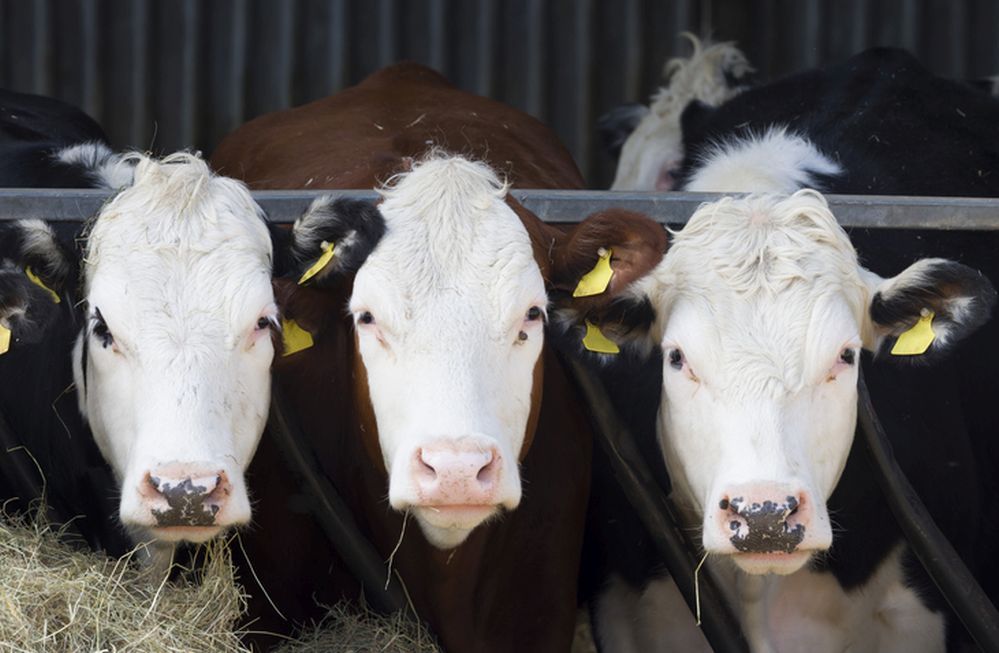
By Agroempresario.com
In a significant move to address methane emissions from livestock, Australian startup Number 8 Bio has asserted that the most effective way to produce feed supplements aimed at reducing methane from cows is through synthetic chemistry, rather than large-scale seaweed cultivation or biomanufacturing. This assertion comes as the global agricultural sector grapples with the urgent need to reduce greenhouse gases, particularly methane, a potent contributor to climate change.
Methane is generated during the digestive process in ruminants such as cows and sheep, primarily in the rumen—a stomach compartment where microbes decompose carbohydrates. This process leads to the production of methane, which is then expelled by the animals. Addressing this issue is vital for both environmental sustainability and agricultural productivity.

Startups worldwide are exploring various methods to mitigate methane emissions, including supplements derived from plant extracts and biomanufactured products. However, Number 8 Bio, founded in 2022 by Dr. Tom Williams and Dr. Alex Carpenter, emphasizes that synthetic chemicals offer the most viable and cost-effective solution for livestock methane reduction.
Initially focused on biomanufacturing, Number 8 Bio sought to genetically engineer yeast to produce methane inhibitors like bromoform—an effective compound found in red seaweed. However, Dr. Williams noted that the economic feasibility of this approach fell short. Despite the technical successes in producing bromoform, the costs associated with production and purification rendered it less appealing compared to alternatives.

“We realized that the most successful solutions need to be low-cost and highly effective,” said Dr. Williams. “Right now, synthetic chemicals are the most promising path forward.” This strategic pivot has led the company to screen numerous small molecules for their potential to inhibit methane production.
Through its in vitro rumen platform, Number 8 Bio has identified a range of synthetic methane inhibitors. These small molecules, which can be manufactured cheaply by third parties, are poised to provide effective solutions for livestock producers. The company has already developed a novel non-bromoform inhibitor that appears to enhance both methane mitigation and animal productivity.
Additionally, the startup is examining prebiotic combinations that promote beneficial bacteria in the rumen, further countering methane-producing microbes. This holistic approach aims not only to reduce methane emissions but also to boost livestock productivity, creating a win-win scenario for farmers and the environment.
With a recent AUD 7 million (approximately USD 4.7 million) seed funding round, Number 8 Bio plans to establish a manufacturing facility in Sydney. The next phase of their research includes extensive testing of approximately 15 product variants in live animals, with expectations for larger trials with commercial partners following successful initial results.
When asked about the effectiveness of their products, Dr. Williams stated, “In a total mixed ration, we can achieve reductions in enteric methane emissions of up to 90%.” However, he acknowledged that the actual effectiveness may vary based on delivery formats and feeding scenarios.
A crucial question remains: who will bear the costs of implementing these methane-reducing technologies? Dr. Williams suggests that all stakeholders—farmers, processors, and consumers—will play a role. For the product to succeed, it must deliver a significant return on investment, ideally a three-to-one ratio relative to the additive's cost.
As Number 8 Bio prepares for commercial trials in Australia, the team is also exploring pathways for regulatory approval in other jurisdictions, including the United States. The company's focus on innovative, cost-effective solutions positions it as a key player in the future of sustainable livestock farming.
